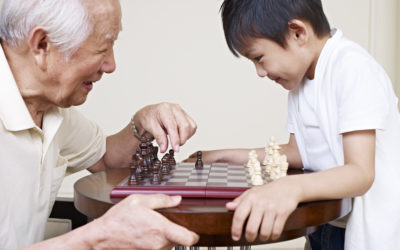Quick Hits
Daily brief research updates from the cognitive sciences

A fascinating piece of research just published shows that drinking coffee makes you more impulsive. That means you are likely to buy more, and more items you actually don’t need.
What is astounding though, is that the effect sizes in this study was dramatic to say the least.
What did these researchers at the University of South Florida find?
They set up a complimentary coffee stand at a store and then offered shoppers complimentary coffee. But only half received caffeinated coffee with the other half receiving decaffeinated coffee. 300 of these people then shared their receipts with the researchers.
The found that those who had drank the caffeinated coffee spent 50% more on average and 30% more items. This figure is exceptionally high. Also suggesting that these individuals probably had no strict budget restraints.
The analysis also showed that those caffeinated shoppers also bought more non-essential items. However, this was not a controlled lab experiment, so the researchers also conducted a lab-based experiment whereby 200 participants then selected what they wanted to buy from a preselected list of 66 items. Again, after drinking caffeinated coffee or decaffeinated coffee or a non-caffeine drink such as water.
The again found that those who had drunk the caffeinated coffee picked more items that could be considered impulsive purchases i.e. non-essential items.
Why?
The effect sizes are so large I would certainly like to see more follow studies on this. However, the group sizes should be large enough to weed out any fluke irregularities. The researchers noted that caffeine is a stimulant and also actives various energizing and feel-good pathways in the brain notably the dopamine network. This can lead to a higher energetic state but also more impulsiveness and lower self-control.
So mental note: before going shopping, keep off the coffee●

Andy Habermacher
Andy is author of leading brains Review, Neuroleadership, and multiple other books. He has been intensively involved in writing and research into neuroleadership and is considered one of Europe’s leading experts. He is also a well-known public speaker speaking on the brain and human behaviour.
Andy is also a masters athlete (middle distance running) and competes regularly at international competitions (and holds a few national records in his age category).
Reference
Dipayan Biswas, Patrick Hartmann, Martin Eisend, Courtney Szocs, Bruna Jochims, Vanessa Apaolaza, Erik Hermann, Cristina M. López, Adilson Borges.
EXPRESS: Caffeine’s Effects on Consumer Spending.
Journal of Marketing, 2022; 002224292211092
DOI: 10.1177/00222429221109247
More Quick Hits
Petting (Real) Dogs Activates the Social Brain
There have been lots of studies into the positive impacts of having pets around us – but this study just published looked at brain activation patterns while being with a dog, petting a dog, and…
Metabolism Predicts Brain Health
Understanding the link between dementia, brain health, and various metabolic disorders such as obesity is important and gives us important clues in…
Super Agers Have Super Neurons
SuperAgers are those who live long, over 80, but retain their cognitive functions including a healthy functioning memory and seem to avoid neurodegenerative disorders such as Alzheimer’s…
How Nature Lowers Stress in Your Brain
Nature is overwhelmingly good for wellbeing but there are many chicken-or-egg problems with the research. This study…
Correcting Others Improves Group Learning
Some interesting and counter-intuitive insights into effective group learning…
Air Pollution In Childhood Changes Brain Structure
Recent research has shown some worrying impacts of pollution on the brain…






